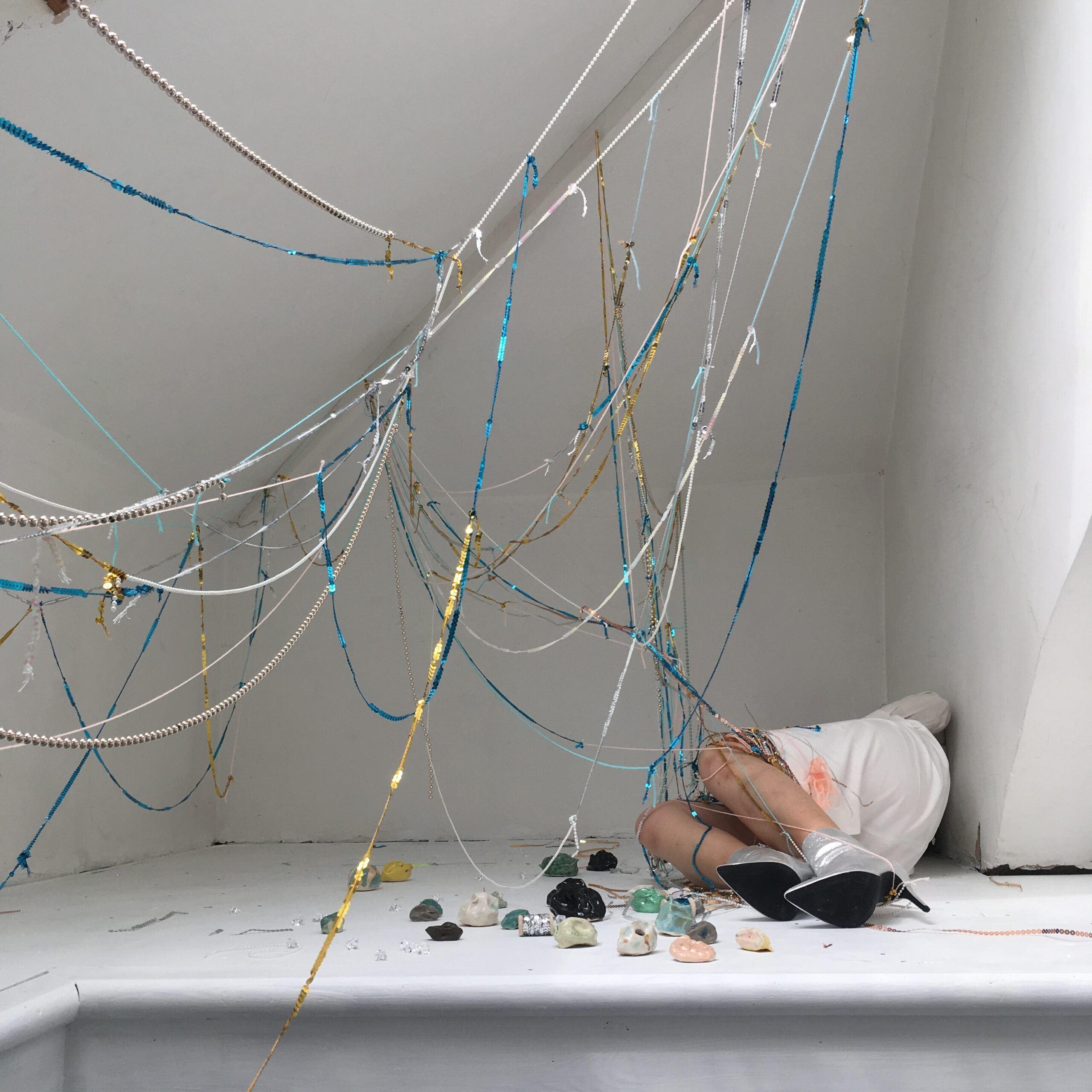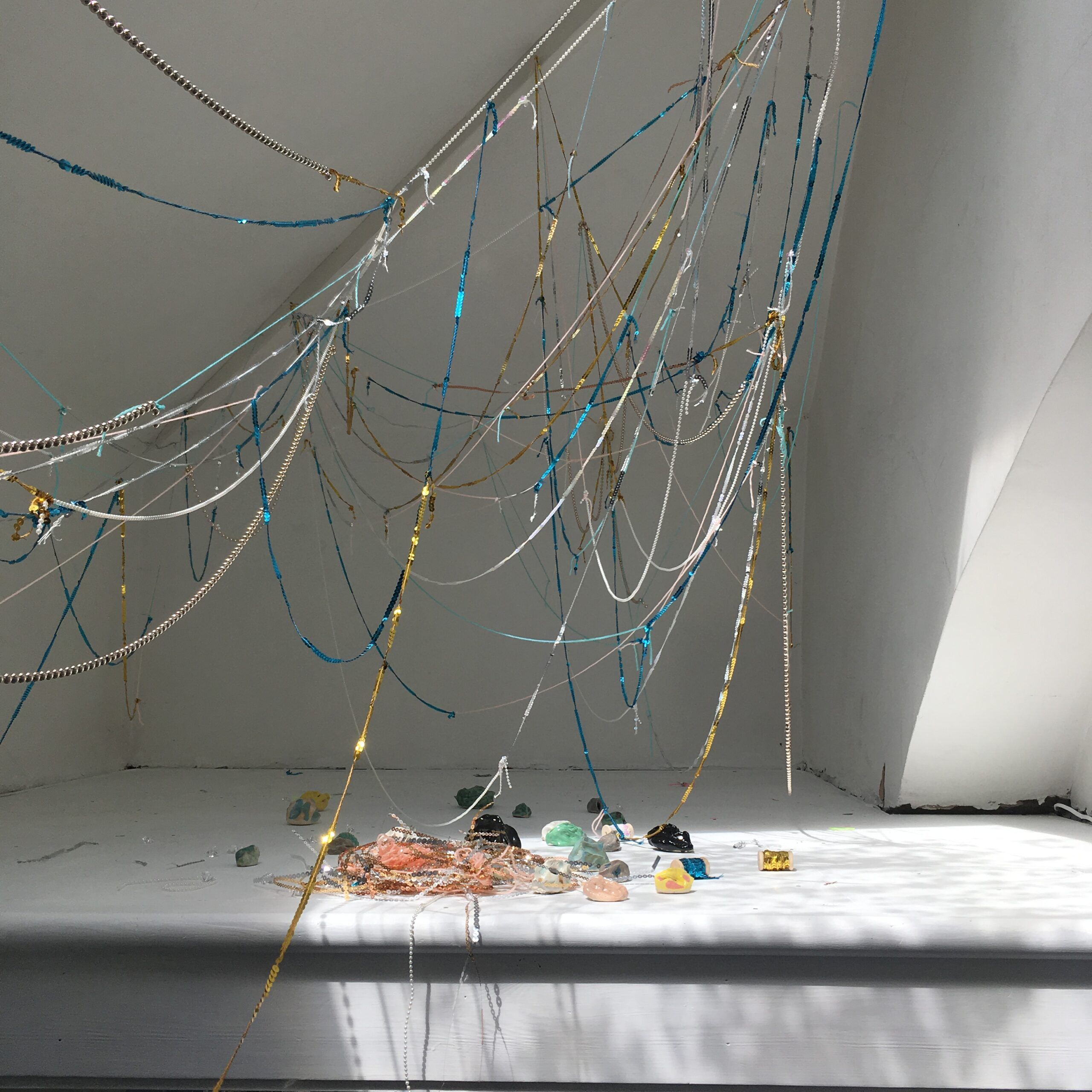A self-conducted interview which offers insight into Price's practice and reflects upon the ways in which she positions herself both in her work as well as her community during the pandemic. Part of "Learning from COVID19: Reflections on knowledge-related commons and practices of self-organization amidst COVID19."
How you are positioning yourself within these shifting grounds?
This time has located me firmly in a life and community that I have fought for and in some aspects fought against, situated me in my home and in the spaces cleared by my choices. Though the severity of COVID19 is a collective trauma, I am used in many ways to shifting grounds and the restrictions of this time have allowed for deeper enquiry personally and within my work. I am finding that I am more and more positioning myself in a political way and I am interested in how this might manifest over time, understanding my position as an artist, a queer woman, a single parent with my history, understanding both the power and vulnerability of these things. Living outside of traditional family structures, I am reflecting on how I can use the energy and potency that it is freed up by this for good. It feels like a period of “repair” after rupture, having claimed back my body and my life through a time of healing I am asking questions of how I might use my experiences and any agency that I might have picked up along the way to help others?
What are you putting your energy into?
I am putting my energy into walking, writing, painting, meditating, and connecting to others. COVID19 strangely allows for more financial support from other organisations and I have been working hard to shore up my life, which is both stable and precarious. I am nourishing myself with simple food and caring for my home in terms of trying to make it more beautiful in simple ways. I have been doing Buddhist meditation, which centres around compassion which has made for seismic shifts within me. I am thinking hard about how I can use my generational privilege that is my home in generous ways, I have been between the cracks societally and am working out this how this position can be used to nourish the place in which I live, that has held me for so long.
How are you organising yourselves?
I am organising myself around routines, trying to self-care, walking, working gently ’til I drop each day and then starting again. I have been making small paintings on cheap stretchers in a light way for the Artist Support Pledge and posting them to other artists and old friends — thus allowing me to support artists and an LGBTQI homeless charity. Life has also organised itself in ways that I can’t control around lodgers in my home, but things have worked out despite initial feelings of rupture. My son is not around, which is tough but I am using this time in ways that I perceive to be best for both of us.
Which practices for individual or common learning have you developed, and where are you drawing knowledge and energy from these days?
I draw from queer communities, conversations with artist friends, Oisin Byrne particularly at present, lots of rich conversations with him that span everything from Beckett to Riverdale. I have learned how to have boundaries around aspects of my community that I would culturally be more expected to be a part of and focus on people and ideas that I feel I have more affinity to. I am listening to myself carefully and learning — looking to artists and activists, talking to people like Derek Horton who is supportive and whose principles are inspiring to me. I have been looking at the work of artists such as Raju Rage and Liv Wynter and being in touch with Sharon Kivland and lightly with Robin Klassnik (often me just sending pictures of dogs to be honest and once a parrot).
Where do you find nourishment; safety; a sense of community?
Home, writing, music, my friends — connecting with old friends messaging with my little brother up north, talking with newer artist friends sensing that I am gently finally starting to find my place. Observing and writing down things I see around me, walking the three streets closest to my home, which house people of every conceivable background is an important ritual, is not clingy but this small area feels full of kindness and glacial acts of healing, layers of time and care.
What insights have you gained?
I look around me at artists who are so are used to precarity and see them mobilise within this space, our strength and resourcefulness is made apparent — we look into voids and stand on shaky ground every day outside of this crisis and my sense is that our powers are more evident to ourselves and to others in this time. I see a swelling or a making visible, a galvanising of powers that exist underneath capitalism and heteronormativity and that this is profoundly hopeful to me. Reflecting on my own weaving in and out of my physical community in Peckham that has been fractured but in other ways (trying to be generous to myself) seeing that I have not just taken what some might see as the cream (I don’t) but that I have connections that are long standing with many people some of whom are on the absolute margins, often in gentle unseen ways through my dog and how rich these invisible threads are.
The greatest insight is that the enforced simplicity of this period has been personally rich. Letting go of the studio and certain expectations of how a painter might “move” feels freeing and is opening up new conversations and questions that are enduring and fertile. Personally this feels like a time post coming back into my body where new spaces can further open up physically and emotionally and questions can be asked about how the healing “webs” of the installations that I have been making can manifest in real ways in term of care and community, where can I put my power having finally claimed it?
Outcomes /excerpt from ACE application
My recent practice has focused on creating safe spaces within my work; these manifest as installations around paintings, creating sets to perform, or within the construction of intimate “dens” where I can produce new ideas. The “webs” are also wrapped around my body in almost “costumes” that protect and allude gently and inquisitively to drag. I will construct a “den” in my attic, built from objects bought in Peckham pound shops. In this alternative studio, I will experiment with deconstructing the ideas & materiality of my paintings; writing texts in response to them, and performing these back to the work.
I interrogate the lines between public and private spaces in my work with emphasis on LGBTQI+ concerns. Instagram has given me an agency to explore notions of marginalisation and empowerment online. In the past six months I have presented my writing in the form of cut up diaristic autobiographical accounts of my life as a queer artist past and present, comprising of memory observation, healing and trauma.I will deepen my daily writing practice, recording private performances which expand upon my text work and spoken word, presenting them on social media.
My writing is concerned with people in my community, spanning observations of my life in Peckham where I have lived for 22 years, revealing untold stories of people on the margins to discuss class and social structures. I gather words and memories to piece together new patterns and stories that can be performed.
Specifically for School of Commons
Within a finite period (either a month or two weeks) I will photograph the dens and webs as I make them in the attic and potentially over costume on my body. I will continue to write the cut up prose and will overlay this as spoken word over these images to make movies that could be posted online. I could also potentially record a performance of these texts playing with recordings as a sound bed underneath my performance of the stories looping on hidden speakers.
Examples of images of previous dens are attached, as well as recordings of earlier writings and writing since lockdown. I am WeTransferring two moving images pieces where spoken word recorded in a sound booth is laid over imagery and a small snippet of a previous performance.
“Learning from COVID19: Reflections on knowledge-related commons and practices of self-organization amidst COVID19” is the result of an open call for contributions launched by School of Commons in late April 2020. Shortly after COVID19 put much of the world into lockdown, the contributions form a collection of observations and different practices of learning, self-organisation, and building community amidst a global pandemic. The submitted contributions are varied in form and content, and have not been curated in any way, instead offering space to the diverse experiences and responses of all contributors.
Clare Price
Clare is an Artist living and working in London studying at both Central Saint Martins and Goldsmiths.
Art On Demand - Radicalizing Access to Art in Times of Crisis
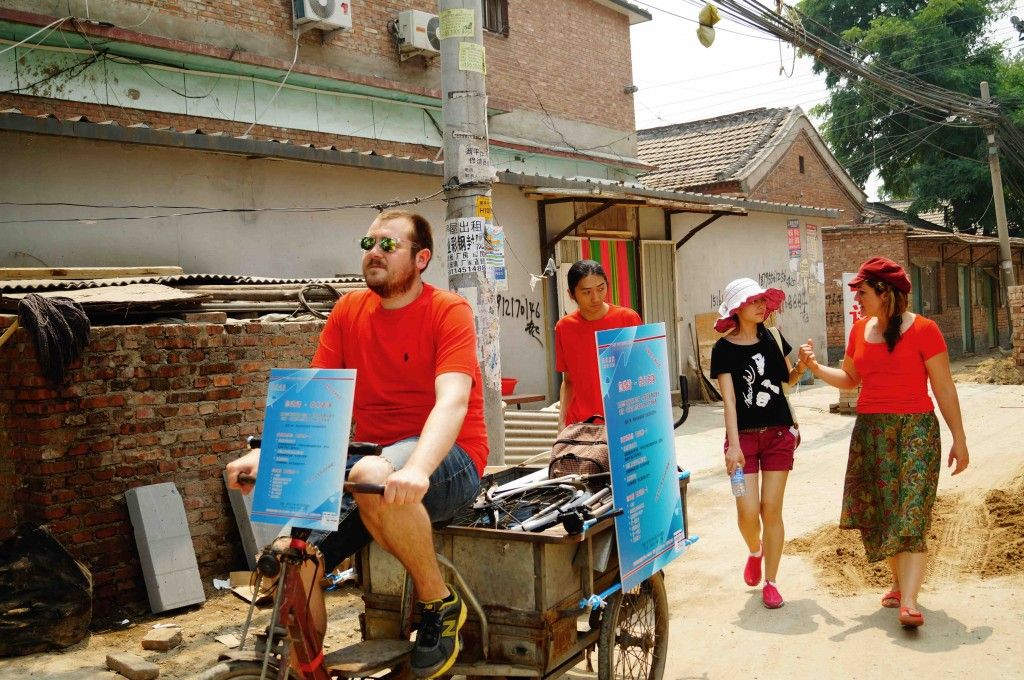
Art On Demand is a collaborative participatory project which creates a platform from and for artists, curators, writers, theorists and audiences to collectively share and experience the creation of and encounter with art. Part of "Learning from COVID19: Reflections on knowledge-related commons and practices of self-organization amidst COVID19." Read more
Bump Galaxy
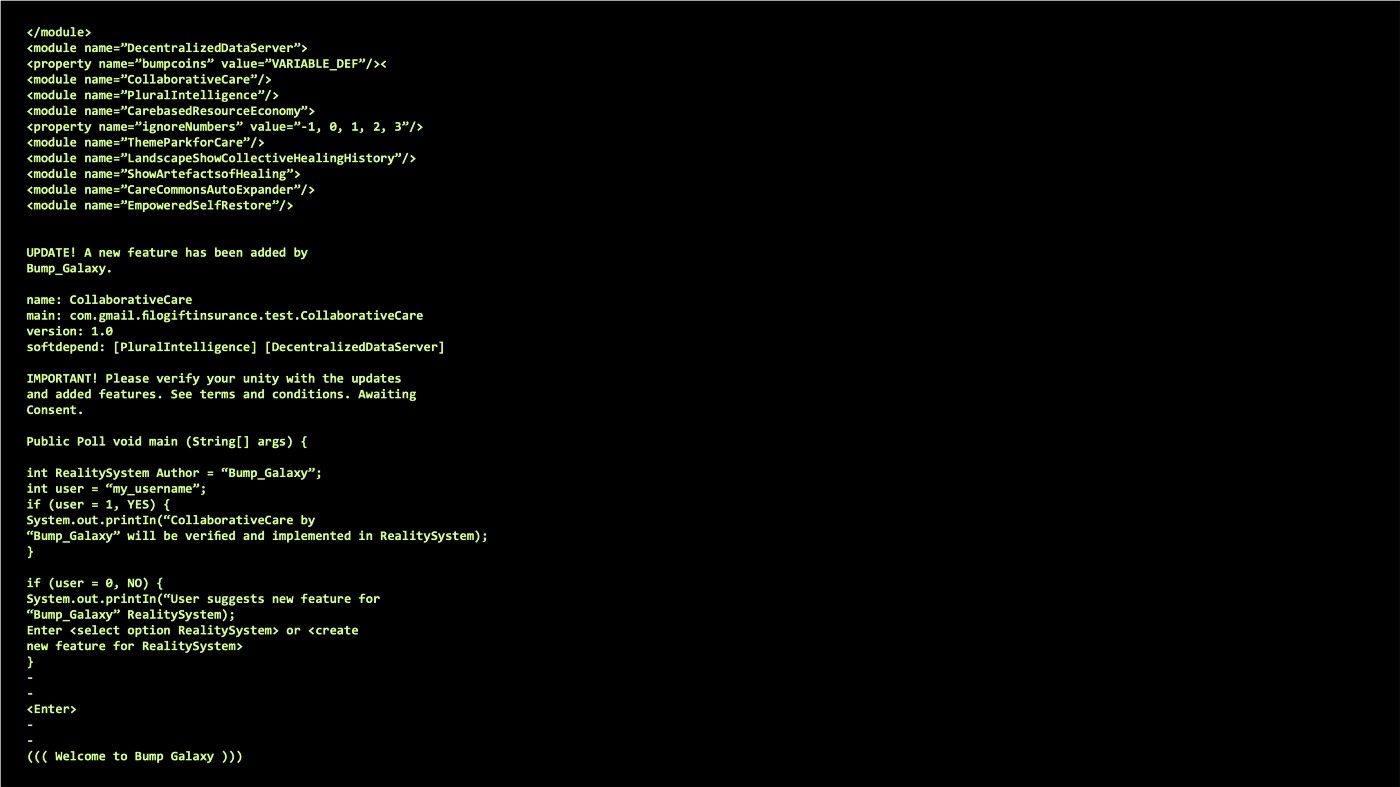
BUMP GALAXY is a virtual world and community for mental health. In it, players can visit several different Care Commons and engage with mental health professionals from around the world. Part of "Learning from COVID19: Reflections on knowledge-related commons and practices of self-organization amidst COVID19." Read more
Prom.run
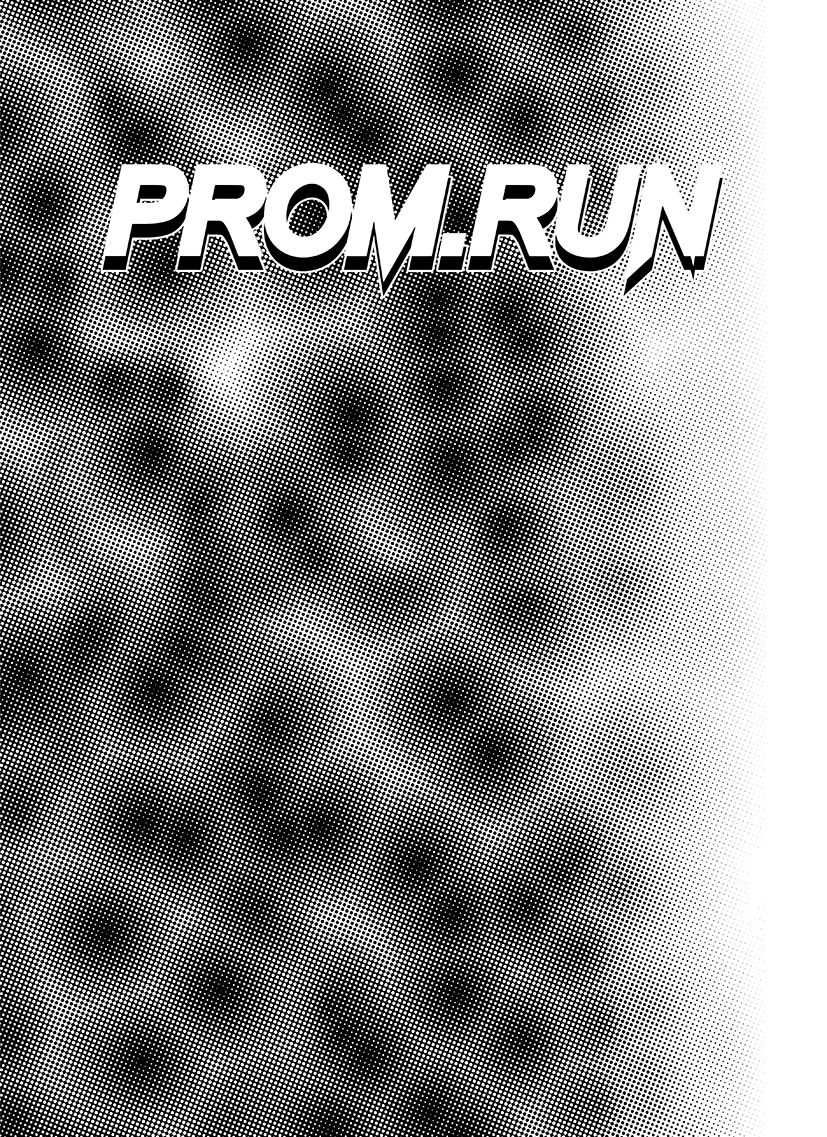
«Prom.run» is the publishing project that consists of a selection of materials that have inspired their practice as an art collective and addresses topics relating to self-organization and knowledge-related commons. Part of "Learning from COVID19: Reflections on knowledge-related commons and practices of self-organization amidst COVID19." Read more
Cuarentena Volumes I
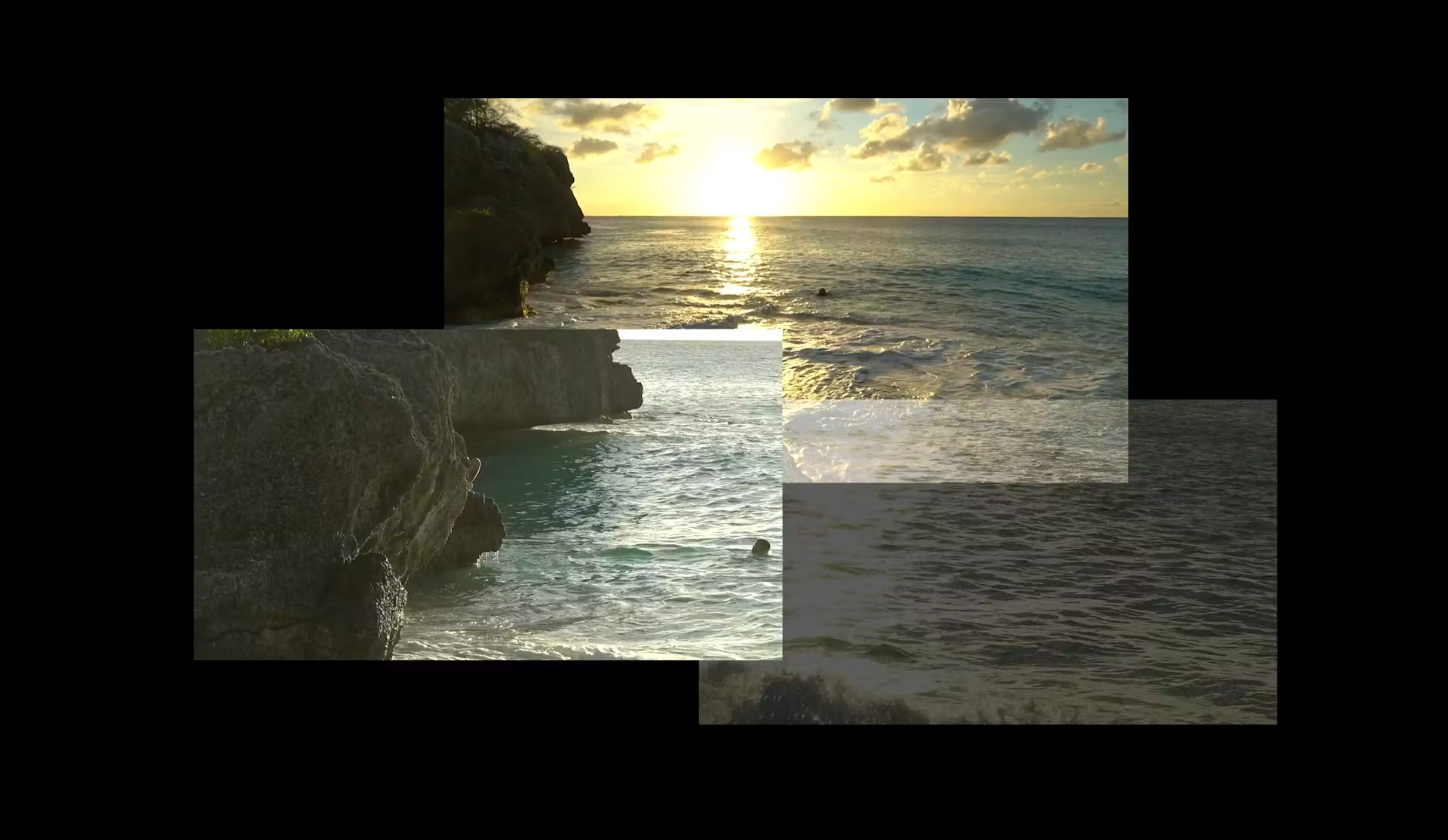
Cuarentena Volumes is abbreviated as cv: “these times might become a dent in the curriculum vitae, allowing to focus on the work itself.” Part of "Learning from COVID19: Reflections on knowledge-related commons and practices of self-organization amidst COVID19." Read more
Somebody

Centering the body without other bodies, Marquedant questions the parameters of being singular. Part of "Learning from COVID19: Reflections on knowledge-related commons and practices of self-organization amidst COVID19." Read more
A short reflection on what COVID-19 teaches us about science

An essay which offers a welcome respite in thinking about the future of knowledge production and its rootedness in community. Part of "Learning from COVID19: Reflections on knowledge-related commons and practices of self-organization amidst COVID19." Read more
A Conditional Construction in the Making

A text reflecting Morrison’s interests in discursive frameworks; performative platforms for critical enquiry; and ways in which we can facilitate and mediate multiple spaces for the generation of knowledge. Part of "Learning from COVID19: Reflections on knowledge-related commons and practices of self-organization amidst COVID19." Read more
GCD Memes
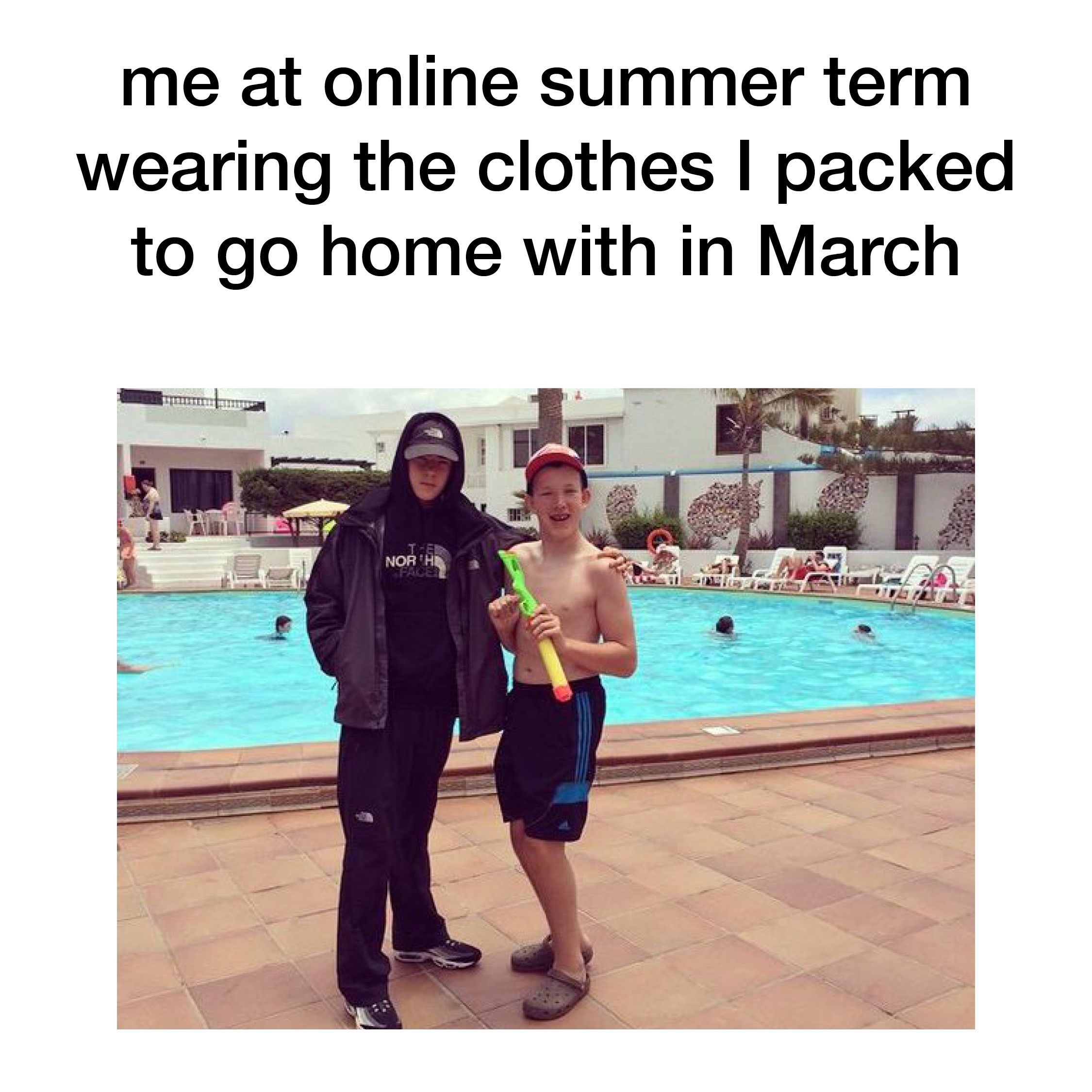
GCD Memes is a rolling body of work that attempts to reflect on the collective experiences of those involved in the GCD course at CSM from the student perspective. Part of "Learning from COVID19: Reflections on knowledge-related commons and practices of self-organization amidst COVID19." Read more
dream#1 2020

This video work is a dreamy, haunting piece that looks at the role our personal stories play in the making of history, as well as the actual political potency of our feelings. Part of 'Learning from COVID19: Reflections on knowledge-related commons and practices of self-organization amidst COVID19.' Read more
I spat on it to put it back together
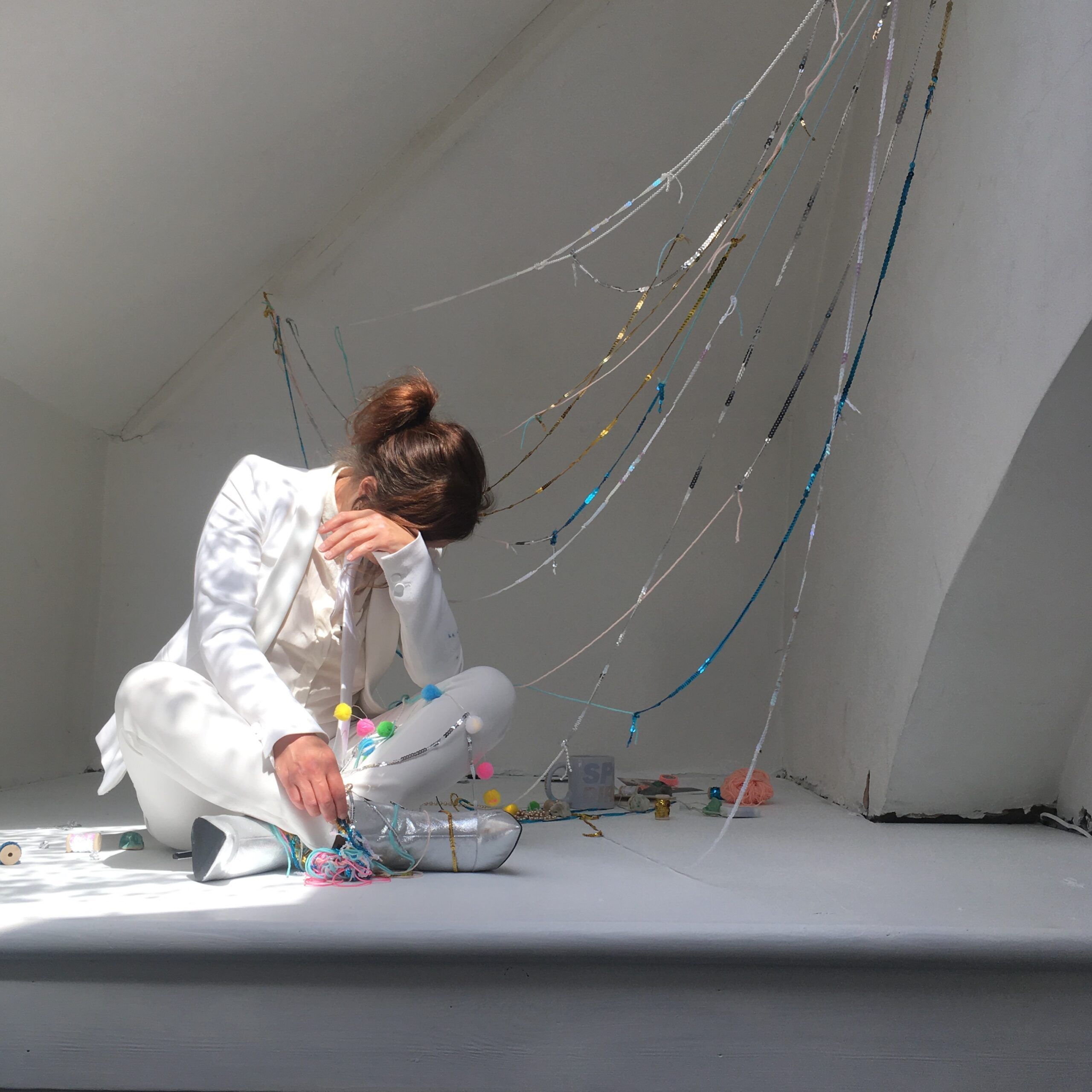
A self-conducted interview which offers insight into Price's practice and reflects upon the ways in which she positions herself both in her work as well as her community during the pandemic. Part of "Learning from COVID19: Reflections on knowledge-related commons and practices of self-organization amidst COVID19." Read more
The Coffee Commons

This essay reflects upon the divergent responses to and asymmetrical consequences of COVID19 in McBride’s home country, South Africa, and her country of residence, Switzerland. Part of "Learning from COVID19: Reflections on knowledge-related commons and practices of self-organization amidst COVID19." Read more
The Anatomy of DIY-Objects in an Epidemic Infrastructure
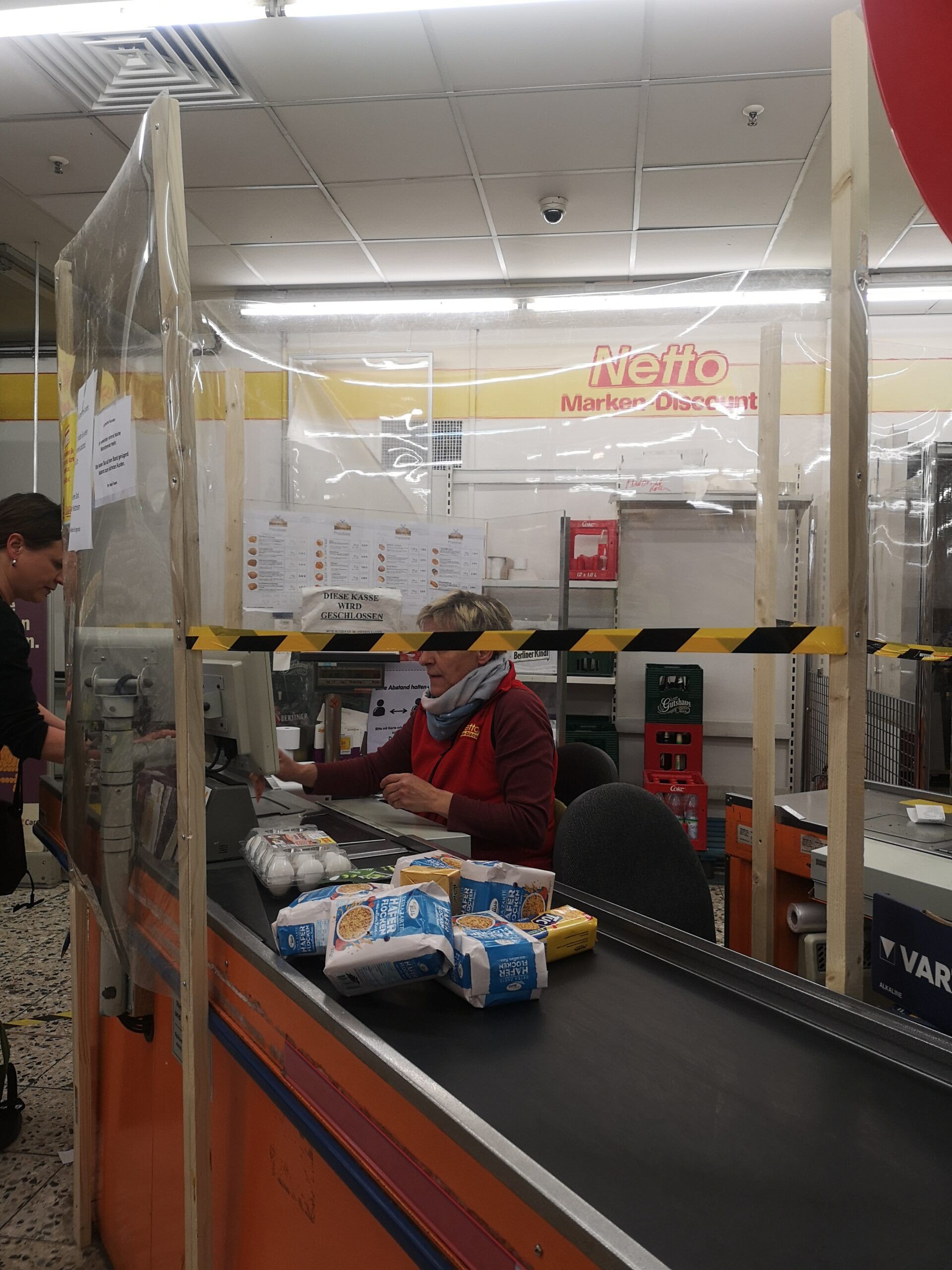
A short visual essay about the DIY infrastructures that pop up amidst a global pandemic. Part of "Learning from COVID19: Reflections on knowledge-related commons and practices of self-organization amidst COVID19." Read more
A three-minute excerpt from springtime 2020
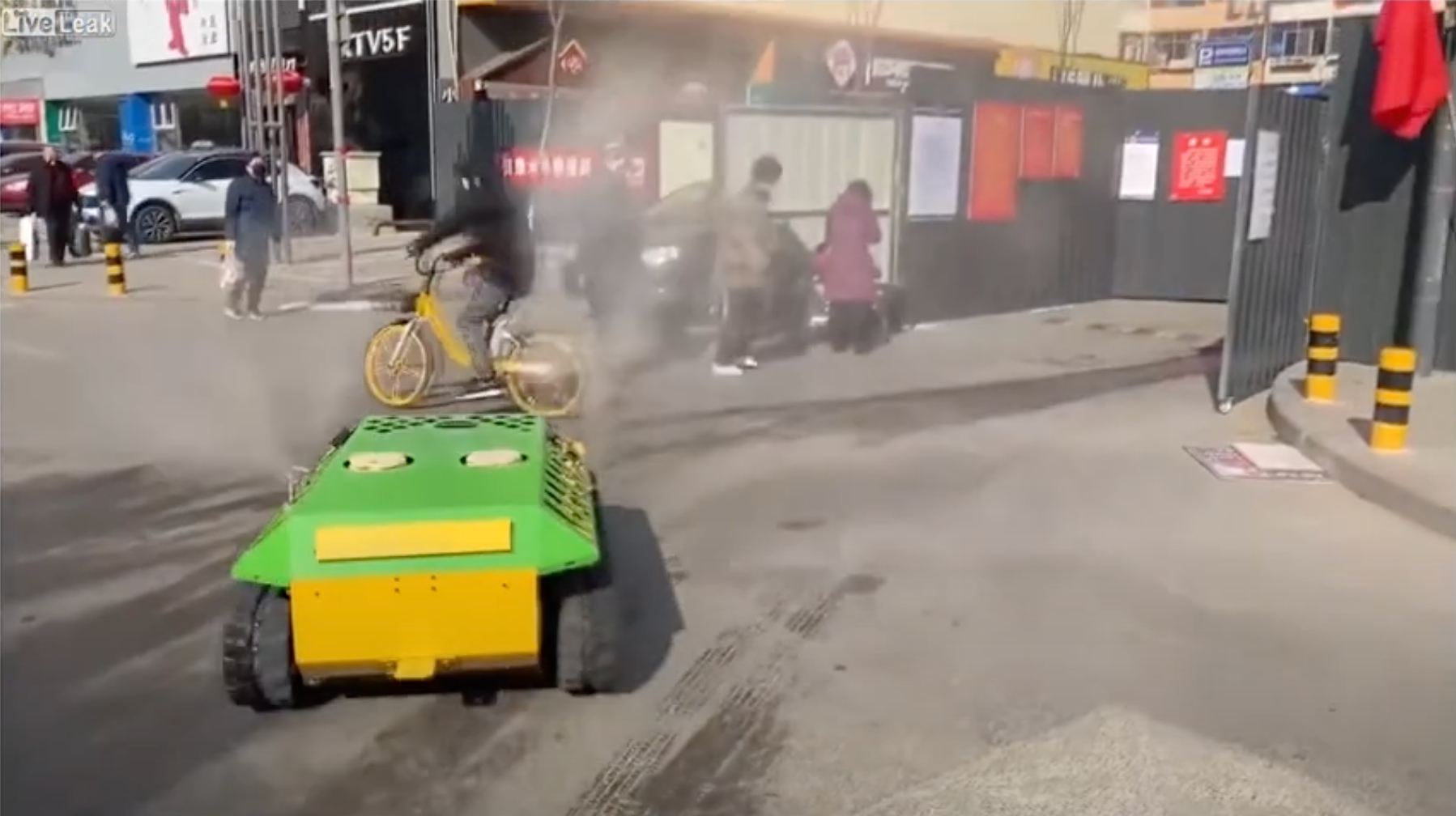
A collection of found footage from the lockdown period. Part of "Learning from COVID19: Reflections on knowledge-related commons and practices of self-organization amidst COVID19." Read more
Kein Strom

A short story, written as a diary entry, describes a lockdown-specific encounter. Part of "Learning from COVID19: Reflections on knowledge-related commons and practices of self-organization amidst COVID19." Read more
Wochenplan
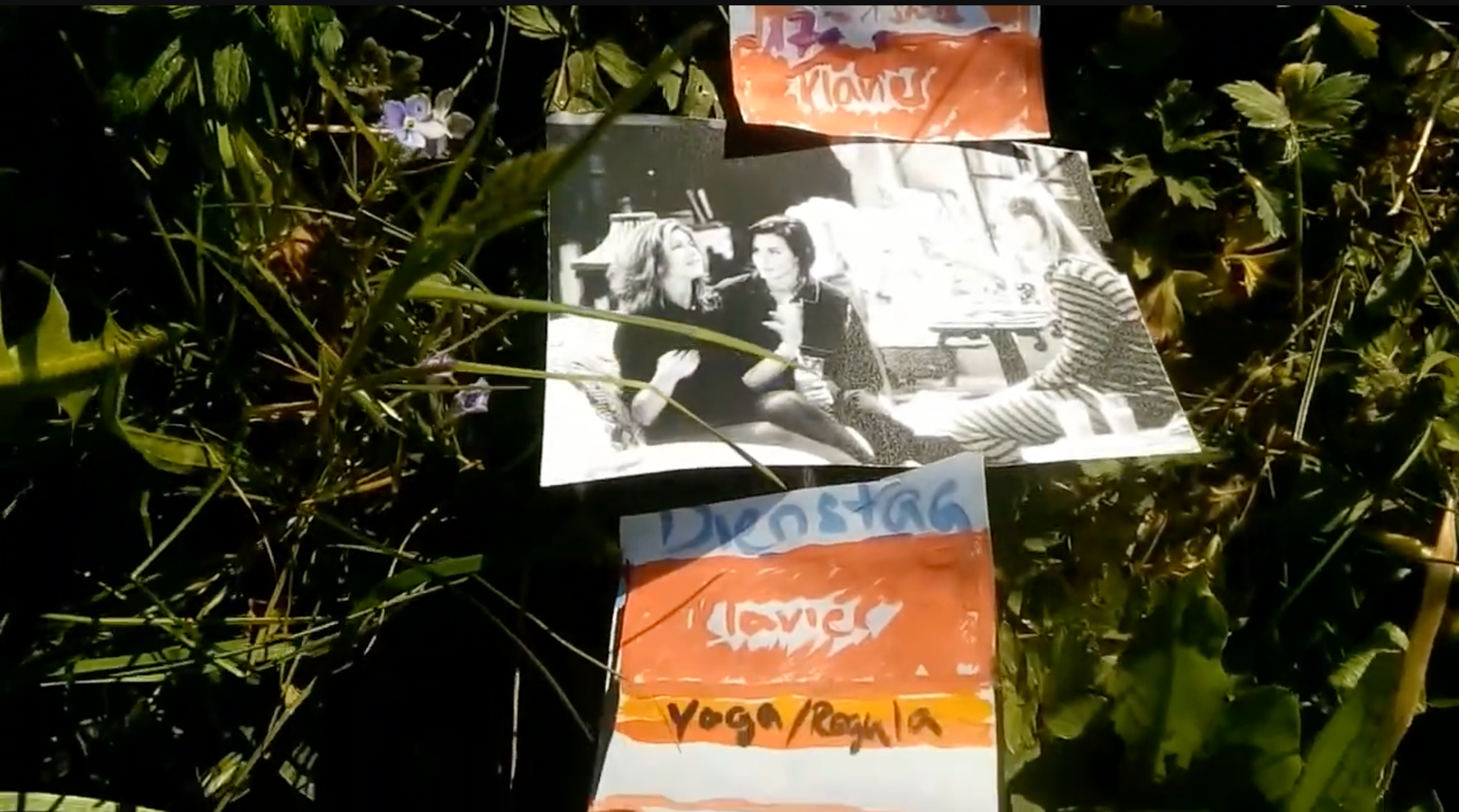
A short video that shows the ways in which Rieger organised her activities into weekly schedules in order to maintain her singing practice as well as her social life. Part of "Learning from COVID19: Reflections on knowledge-related commons and practices of self-organization amidst COVID19." Read more
